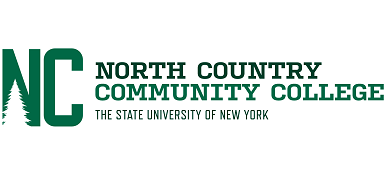College Bridge Instructor Information
Welcome to the North Country Community College BRIDGE (dual enrollment) program!
We welcome your participation in the NCCC BRIDGE program as an adjunct instructor.
You are participating in a dual enrollment program in which the college course will qualify to meet the high school graduation requirement. Students who participate in dual enrollment have the opportunity to become more college ready by participating in college courses in a familiar environment. The rigor and content of the course will match that provided on the college campus.
Dual enrollment exists because colleges are accredited by an impartial accreditation agency which has reviewed the course content and rigor already approved and registered by SUNY and NYS Education Department. The location of the course delivery is the local high school for enrolled juniors and seniors. Adhering to the content and rigor is required to ensure that students are prepared for the next level college course. Course rigor is the same at a community college as a four-year college in the first and second year.
Courses offered through dual enrollment program are general elective courses, which are introductory courses in a wide range of fields. Students participate in this array of courses to home communication and critical thinking skills.
At NCCC, the partnership between your high school and the college allows the course to be offered to students at a low fee. All partners recognize that students in this area are economically disadvantaged and are often first generation college goers.
Providing college readiness skills and college courses prepares students to enter the college of their choice prepared to succeed. Research indicates that students who complete dual enrollment courses are more likely to graduate from college.
You are considered a voluntary adjunct instructor for North Country Community College. We have reviewed your transcripts and your resume to determine if you have sufficient in-depth academic experience in the field of the course you are teaching. This means you have completed 18 credits or more in upper level undergraduate work or hold a Master’s in the field of instruction.
You are using the NCCC course outline that includes all the material that must be covered in the course.
You also have created a syllabus for the college course which you will distribute to your students at the beginning of the semester.
You will participate in the advising of your enrolled students by reviewing their registration status and embedding use of NCCC on-line library resources for your course.
You will have included more rigor in the college course, adding supplemental readings that are more challenging than those of the high school course, requiring longer and more complex writing assignments and research papers.
We have provided both you and the student access to the NCCC on-line library resources to expand research resources. Our library staff can provide a workshop to faculty on accessing the information.
At every opportunity, you will use the North Country course name and course number as the high school information does not transfer any credit to the student’s college. You are teaching a college course and we urge you to refer to the course by its college designation as frequently as possible. The student will not benefit from considering this a high school course that gets credit. For instance, do not use English 12 but ENG 101, English Composition I.
In addition to entering the alphabetic grade to NCCC, you will provide a copy of your grade book to provide documentation for the awarded grade. These can be e-mailed to the records office.
Timely submission of grades is critical to allow students to obtain transcripts that are accurate. We can not enter grades until the grade books are received from all faculty. Particularly Academic Year and Spring Semester courses need timely attention at the end of the year.
The NCCC grade rubric is available in the NCCC catalog page 21.
You will be asked to attend professional development opportunities, usually workshops with NCCC faculty to ensure that students are receiving the same content at all locations. This will be an opportunity to align curriculum between high school and college and to meet with your high school and college colleagues to review the curriculum to align with current collegiate and workforce needs.
Please read your e-mail provided through NCCC. Your information technology coordinator can assist you in forwarding your e-mail to your favorite account. Reminders about deadlines, workshops, and other important information will be distributed this way. This will ease the information flow for which your counselor has been responsible.
